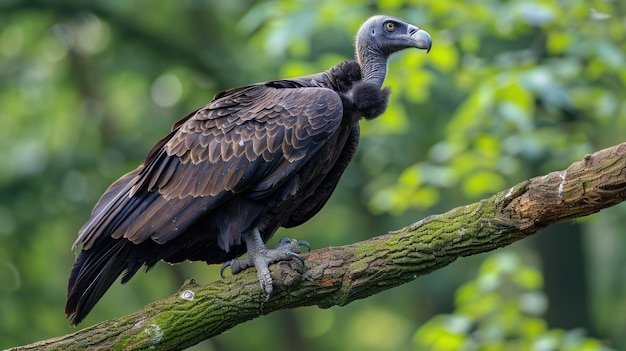
Imagine you’ve just finished a big meal, and you leave the leftovers sitting out. Over time, they start to smell, right? If those leftovers aren’t dealt with, they can attract all sorts of unwanted pests. Vultures swoop in, figuratively speaking, and eliminate that potential problem. In this article, we’ll dive into the important contributions vultures make to their ecosystems, understanding why these often-misunderstood birds deserve more love and respect.
What Do Vultures Eat?
Vultures are primarily scavengers, which means they eat dead animals (or carrion). Their diet usually consists of:
- Roadkill
- Carcasses from larger animals like deer or cattle
- Animals that succumb to natural causes, such as old age
You might be wondering what makes vultures different from other scavengers. For one, they have strong stomach acids that can break down harmful bacteria found in decaying flesh. This means they can consume things that could make other animals sick. Honestly, without vultures, these decomposing bodies would pile up, creating a breeding ground for diseases.
Plus, their keen eyesight helps them spot carcasses from miles away. They soar high in the sky, scanning the ground below. It’s almost like they have a built-in GPS system for finding their next meal. And when they do find a dead animal, they can get to it before other predators, ensuring that nothing goes to waste.
How Vultures Benefit the Environment
Vultures play a significant role in maintaining the health of ecosystems. Here’s how:
1. **Disease Control**: By consuming dead animals, vultures significantly reduce the risk of disease outbreaks. Think of them as the first line of defense against germs and pathogens that thrive in decomposing bodies. By eliminating these carcasses, they prevent the spread of bacteria and viruses that could otherwise affect other wildlife and humans.
2. **Nutrient Recycling**: When vultures eat, they not only dispose of waste but also contribute to nutrient cycling. Their droppings, rich in nutrients, help fertilize the ground. This, in turn, supports plant growth, which is vital for other animals in the ecosystem. It’s a beautiful circle of life!
3. **Biodiversity Support**: By keeping the populations of other scavengers in check, vultures help maintain a balanced ecosystem. Without them, smaller scavengers might voraciously overpopulate, leading to a lack of resources. Vultures ensure that nature has a balance, allowing for various species to thrive together.
The Types of Vultures
Globally, there are over 20 species of vultures, but they mainly fall into two categories: **Old World vultures** and **New World vultures**.
Old World Vultures
These vultures are found mainly in Europe, Asia, and Africa. They are more closely related to eagles than to the vultures in the Americas. Old World vultures rely heavily on their keen eyesight to find food. They often lose their sense of smell, making sight their primary tool.
New World Vultures
Found primarily in the Americas, New World vultures, like the Turkey Vulture, have a strong sense of smell that helps them locate carrion—even when it’s buried beneath vegetation. They possess unique thermal receptors that allow them to detect gases emitted by decaying bodies.
Each type of vulture has its unique adaptations that make it better suited to its environment, but they all share one important trait: they’re fantastic at cleanup!
Threats Facing Vultures
Despite their importance, vultures are facing numerous threats around the globe.
1. **Habitat Loss**: As human populations grow, natural habitats are destroyed to make way for agriculture and urban development. This leads to fewer places for vultures to live and find food.
2. **Poisoning**: Sadly, vultures often consume animals that have been poisoned by farmers trying to protect their livestock from predators. When vultures eat the carcasses, they too fall victim to the poison.
3. **Declining Food Sources**: With increasing urbanization and climate change, the availability of carrion is declining. Vultures need dead animals to survive; without them, populations can plummet.
Conservation efforts are essential to protect these birds and their habitats. Organizations worldwide are working on initiatives to ensure that vultures remain a vital part of our ecosystems.
Why Vultures Deserve Our Appreciation
So, why should we care so much about vultures? Here’s the thing: they are often misunderstood creatures. People tend to associate them with death and the macabre, but that oversimplifies their role. Vultures are nature’s recyclers, and without them, our world would face significant ecological challenges.
Imagine a community suddenly hiring more garbage collectors. Without these workers, waste would pile up, leading to all sorts of public health issues. Vultures perform a similar function for the environment. Recognizing their value is key to fostering a healthier planet.
And let’s not forget their fascinating behaviors! From their soaring flight patterns to their social dynamics, vultures are intriguing creatures that deserve our curiosity and respect.
How to Help Vultures
If you’re interested in helping vultures, there are several ways to get involved:
- Support Conservation Organizations: Donating to groups that focus on vulture conservation can make a huge difference.
- Spread Awareness: Talk to friends and family about the importance of vultures; the more people know, the more we can protect them.
- Report Poisoning Incidents: If you suspect that vultures are being poisoned in your area, report it to local wildlife authorities.
Every little action counts! Whether it’s a conversation or a donation, you can contribute to the cause.
Vultures may not be the most glamorous birds out there, but they play an irreplaceable role in their ecosystems. They help keep our environments clean, control diseases, and recycle nutrients. With many species facing threats, it’s essential to take action to protect these remarkable creatures.
So the next time you spot a vulture soaring high in the sky, take a moment to appreciate what it does for our planet. They’re not just scavengers; they’re vital players in maintaining balance in nature, and they deserve our respect and protection. Let’s celebrate their role and work together to ensure that vultures continue to thrive for generations to come.
